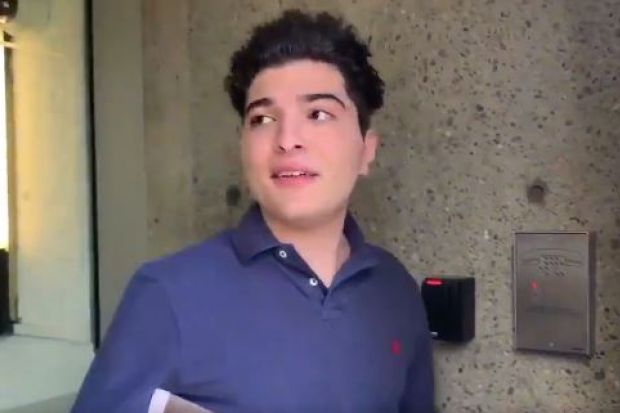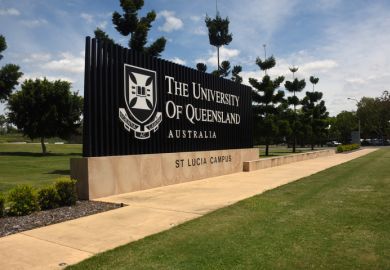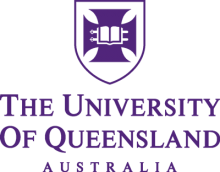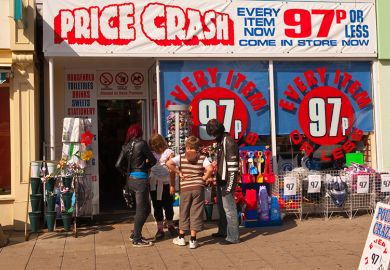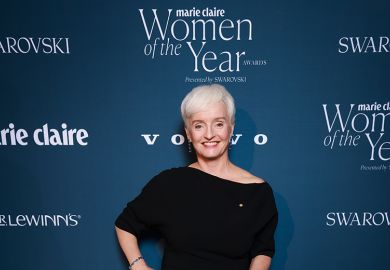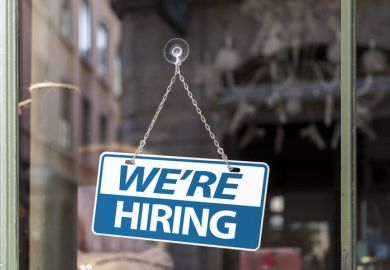A high-profile anti-Beijing campaigner suspended by the University of Queensland has had his penalty partially upheld in an internal disciplinary process.
The disciplinary appeals committee of the UQ senate, the institution’s governing body, has suspended Drew Pavlou for the rest of 2020. Mr Pavlou, the undergraduate student-elected member of the senate, had originally been suspended for two years over 11 allegations of misconduct.
Mr Pavlou says he has been targeted over his criticism of the Chinese Communist Party (CCP) – a claim UQ denies. He has attracted global headlines over his campaign against the university’s involvement with China, which he says amounts to tacit endorsement of CCP actions in Hong Kong, Tibet and Xinjiang.
UQ derives considerable income from China by educating thousands of its students and hosting a Confucius Institute, among other activities. Fees from Chinese students accounted for some 20 per cent of UQ’s revenue in 2018, and that figure is likely to have risen since.
Describing the committee’s decision as “disgusting and cynical”, Mr Pavlou said it had expelled him even though it had “admitted 90 per cent of the charges against me were total fabrications”.
The penalty will have little effect on his studies, as he had already deferred his second semester classes. But he said the decision meant he would be ejected from the senate and barred from running in this year’s student elections.
“UQ still achieves its main goal of removing me as an elected student representative,” he said, describing the reduction in the penalty as “a face-saving PR move”.
“The effect is the same – no oversight,” he said. “Make no mistake, this is being done to please their masters in Beijing and the blood money that they provide. Close to A$1 million [£550,000] of taxpayer funds has been spent by a public university crushing free speech and defending a hostile foreign power.”
He has flagged an appeal to the Supreme Court of Queensland. “We will fight on for as long as necessary. Total exoneration. No compromise.”
In a statement, UQ chancellor Peter Varghese confirmed that the committee had upheld a finding of serious misconduct on two of the allegations but not the others. It had consequently reduced the suspension from two years to one semester, in a decision that “concludes the university’s disciplinary processes”.
“Neither of the findings of serious misconduct concerned Mr Pavlou’s personal or political views about China or Hong Kong,” Mr Varghese said. “The university has consistently said that no student should be penalised for the lawful expression of personal views. This should finally put to rest the false allegations that this process has been an attack on freedom of expression.”
Mr Varghese said that contrary to Mr Pavlou’s claims, the committee had not found that any of the allegations against him had been fabricated. “The committee conducted a complete rehearing of the matter and was required to make decisions based only on the evidence before it.”
The developments deepen the acrimony between Mr Pavlou and UQ. In June, he initiated Supreme Court proceedings against the university, Mr Varghese and vice-chancellor Peter Høj, seeking A$3.5 million in damages for alleged “breach of contract, negligence, defamation, deceit and conspiracy”.
Last week, he said UQ’s lawyers had submitted a request to the Supreme Court to “throw out my lawsuit in its entirety”.
Register to continue
Why register?
- Registration is free and only takes a moment
- Once registered, you can read 3 articles a month
- Sign up for our newsletter
Subscribe
Or subscribe for unlimited access to:
- Unlimited access to news, views, insights & reviews
- Digital editions
- Digital access to THE’s university and college rankings analysis
Already registered or a current subscriber? Login
